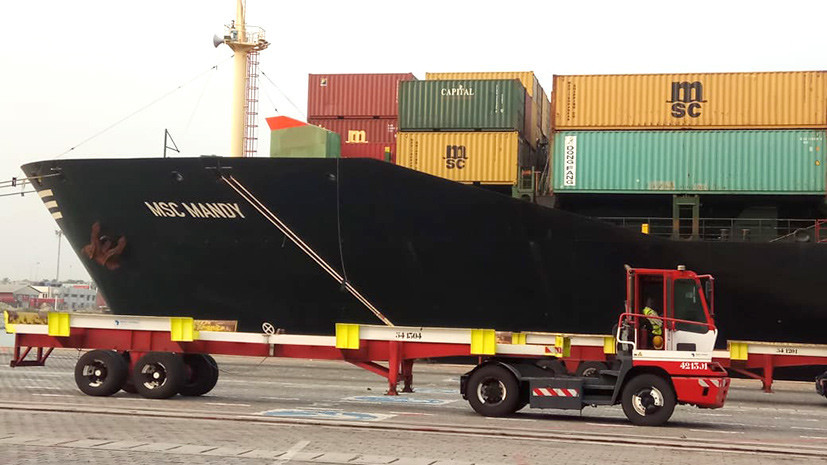Coordinator of the International Federation of Transport Workers (ITF) in Russia, Sergei Fishov, told RT about the situation with Russian sailors who were abducted by pirates at the beginning of the year off the coast of the West African state of Benin.
“It is known that negotiations are being conducted by intermediaries - in this case, it is a British company that the shipowner has hired. Of course, no one will publicly announce the amount of the ransom. Usually from capture to release takes no more than a month. It all depends on the amount requested: usually it is within a few tens of thousands of dollars, ”Fishov said.
He added that, according to the 2006 maritime convention, in such cases, the sailors still get paid for the time they spent in captivity. In addition, after release, they are always provided with psychological and, if necessary, medical assistance.
Fishov explained that the exchange is usually made where the mediator is able to agree.
“This is always a secret. Redemption in some countries - a criminal offense. This scheme has already been worked out, ”said the expert.
"Only armed guards"
As a journalist told RT, the chief editor of the Maritime Bulletin, Mikhail Voitenko, recently abductions in the Gulf of Guinea occur quite often: about once every few months.
“For many years I have been watching Nigerian pirates, I can’t say that these cases are increasing. On the contrary, quite periodically and evenly. At the moment, the Gulf of Guinea remains the most dangerous place and the hottest point in relation to piracy, no doubt, ”said Voitenko.
He explained that one can only defend oneself from piracy and get rid of the phenomenon as a whole.
“It is necessary to legalize armed private security on board commercial vessels in dangerous waters. But this requires an international convention that all riparian countries would adopt. This will immediately resolve the issue forever. Only at the moment such a convention is not enough for anyone, ”said the expert.
According to him, in Nigeria there is such a symbiosis of power, pirates and the military, that they all have their share in this business. Voitenko argues that the country will oppose such innovations, like other states of the coast of the Gulf of Guinea.
“It is unprofitable for them, because they will lose their personal income. Here the question is generally as such about the safety of thousands of people who work, and he is not interested in anyone, ”said Voitenko.
Situation in the Gulf of Guinea
According to the deputy chairman of the Russian Seamen’s Union (RPSM), Igor Kovalchuk, until recently, abductions of seamen occurred most often off the coast of Somalia.
“Very serious attention was paid to this problem by all states. The UN adopted a resolution on this issue, a mandate was received to ensure that military sailors worked there, escorted convoys of civilian ships along dangerous places. In addition, the practice of hiring special armed guards by shipowners, which is on board the ship when it is in the area, has become widespread. By and large, it was the armed guards who sharply reduced to a minimum the incidence of piracy in the area of the Somali peninsula, ”Kovalchuk believes.
He confirmed the words of Voitenko that now the most cases of seizure of ships occur in the Gulf of Guinea, where only in the last year 130 sailors were abducted and 6 vessels stolen. According to Kovalchuk, all attacks took place in the territorial waters of specific states, and not in international ones, as in the case of the Somalia region.
“It is for this reason that it is impossible to keep armed guards in this area, since a civilian ship does not have the right to have weapons on board. In this case, it is necessary to negotiate this with the authorities of these African countries, or to ensure that they could ensure the safety of navigation on their own, ”the expert believes.
Capture ship
Recall that the attack of African pirates on the container ship "MSC Mandy" occurred on the night of 1 to 2 January in the Gulf of Guinea, 20 miles from the Beninese city of Cotonou. They seized a ship that was flying the flag of Panama for several hours. The crew consisted of 20 Russians, four Ukrainians and two Georgians.
The pirates with Kalashnikovs and machetes robbed the ship for two hours and then kidnapped six crew members: captain Andrey Ivanov and his assistant Andrey Svitin, third assistant Alexander Simonov, boatswain Igor Teleshin, coc Andronic Grigorian and welder-flitter Roman Ivanov. Four of them are from St. Petersburg, one from Taganrog, one from Novorossiysk.
The fate of the prisoners was unknown for more than two weeks, but in the end the pirates, as is usually the case in such cases, got in touch.
They gave the opportunity to the captain of the vessel, Andrei Ivanov, to talk by satellite phone with representatives of the company on which the sailors worked abroad. He said that all Russians are alive and well.

